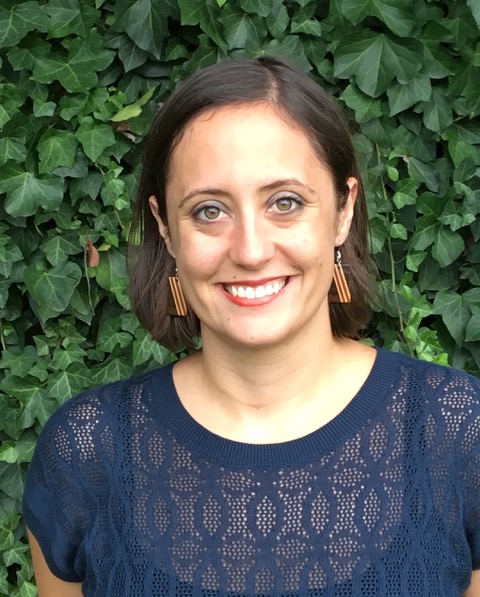On the blog we’ve previously shared a sneak preview of the American Society for Bioethics and Humanities (ASBH) plans for the Feminist Approaches to Bioethics (FAB) Affinity Group. The upcoming session features one of the blog co-editors! Now we’re providing a bit more overview of not only the session (as well as how ASBH members who are not going to be in-person this year in St. Louis can join it) but also about the new FAB Affinity Group co-chairs who are leading the group for a three year term 2024-2026 and plans they have in store for group during this time. In lieu of a scholar spotlight this month, we’re feature two scholars and the FAB Affinity Group.
Read on to learn more directly from the co-chairs who wrote this guest post below.
The Co-Chairs Introduce Themselves
As the new co-chairs of ASBH’s Feminist Approaches to Bioethics affinity group, we (Lindsey Grubbs and Devora Shapiro) are excited to preview our session at the 2024 ASBH conference in St. Louis, and to share a bit about our plans for the next three years.

Lindsey Grubbs is an assistant professor in the Department of Bioethics at Case Western Reserve University, where she teaches health humanities and bioethics from the BA to the PhD and MD level. Her research into the literary history and contemporary ethics of medical conditions that lack objective markers and thus rely on too-often-ignored patient testimony (sometimes called “undocumented” or “invisible” disabilities) has been published in venues including Literature and Medicine, the Journal of Medical Humanities, the Cambridge Companion to American Literature and the Body and the American Journal of Bioethics: Neuroscience among other venues.
Devora Shapiro is Associate Professor of Medical Ethics at Ohio University Heritage College of Osteopathic Medicine. She is a philosopher and clinical medical ethicist with research areas including medical trauma and medical gaslighting, intersectional approaches to diagnosis and treatment, experiential knowledge and medical practice, and clinical ethics topics such as ethically engaging “complex” patients. Her work has been published in The Hastings Center Report, The Journal of Clinical Ethics, CHEST, and International Journal for Feminist Approaches to Bioethics.

Plans for the 2024 ASBH Conference in St. Louis
We are excited to kick off our term as co-chairs with an absolutely fabulous affinity group session at this year’s ASBH conference, which will take place from 1-2 PM CST on Friday, September 20th. The session will take the form of a panel of short talks at the intersection of feminist and disability bioethics. Noting the large degree of shared membership between FAB and the disability ethics affinity group, the intellectual connections between the approaches, and the strengths of our members in this area, we believe a panel on this topic will be of interest to FAB members. We have a great group of speakers: Kara Ayers will speak on “Reproductive Justice at the Intersection: Feminist and Disability Ethics,” Alison Reiheld will present “’This world isn’t big enough for the both of us’: Fatness, disability, and making spaces,” and Jada Wiggleton-Little will deliver “Normalizing Bodies in Pain.” We plan to advertise the session widely and hope to attract a few new potential members. A zoom option will be available for members who are unable to attend the conference in person – if you’re an ASBH FAB member, you should have received an email about this, and will get a reminder prior to the conference!
Looking Ahead for the FAB Affinity Group
In addition to events at ASBH, we plan to hold 2-3 zoom events per year in order to build community and share thoughts on teaching and research. One of the first things that we did when we assumed leadership of the affinity group was to distribute a survey to get to know our members and assess their interests for the coming years. We learned a lot, both about the wide range of members’ research interests and professional roles, and about the kinds of events that people would like to see. According to our survey, the most popular format for these events is a discussion with authors of recent significant publications (garnering 88% of votes), followed by works-in-progress flash talks (68%) and themed research panels (64%). We intend to organize events of each of these types over the course of the next year.
We look forward to creating spaces, both digitally and at ASBH, for continued connection and the sharing of ideas. We have also established a listserv for the group that members will need to opt into, which we hope people will use to plan conference panels, share recent publications, and build feminist community (again, check out your recent email for an enrollment link and look out for reminders!). Over the next three years, we also hope to continue to plan events that intersect with the interests of other affinity groups, building connections that can help to strengthen coalitions of bioethicists who prioritize issues of justice and equity.

